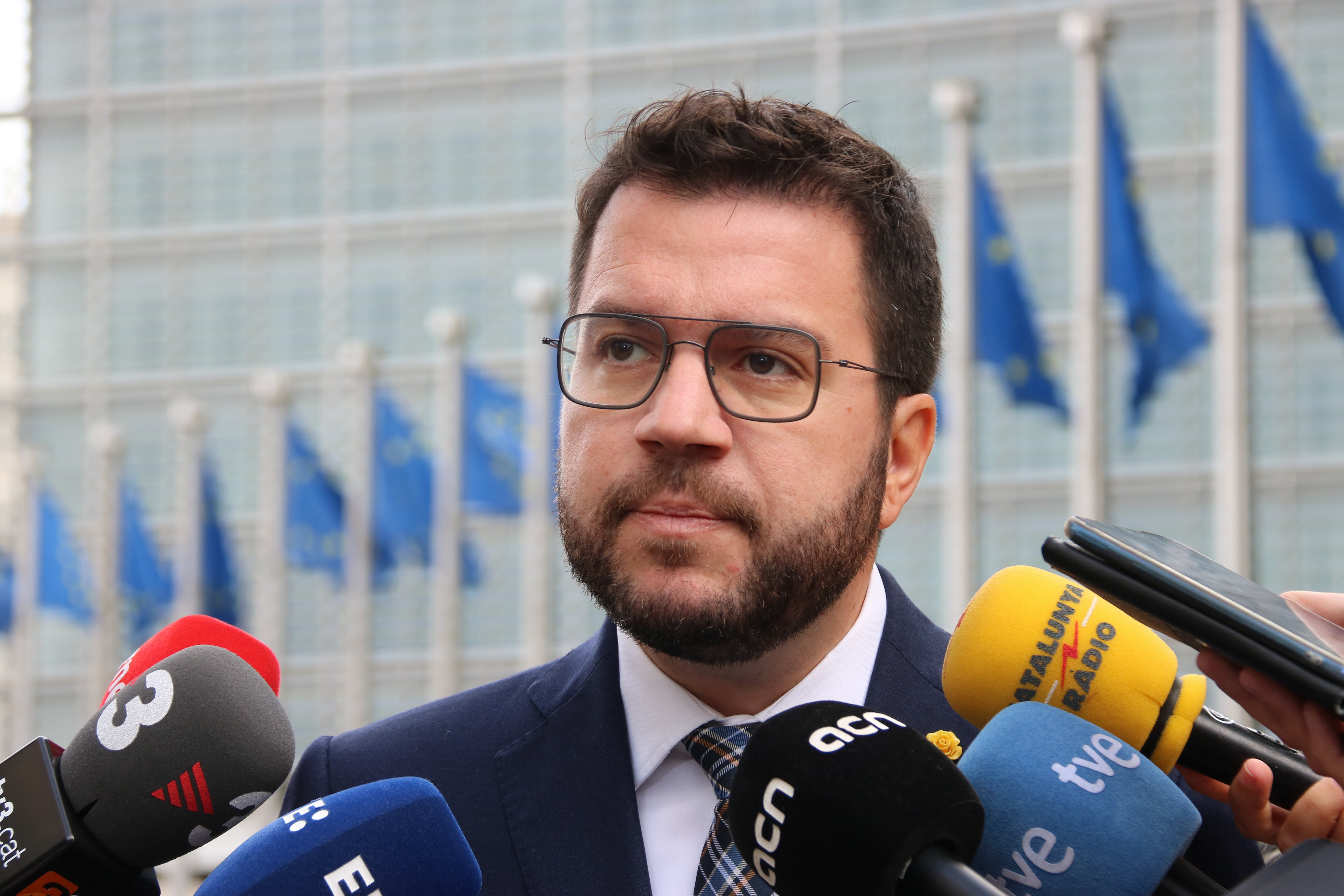The European computer chip and green energy were the focuses of the second day of the visit by the Catalan president, Pere Aragonès, to Brussels in which he met with the Internal Market commissioner, Thierry Breton. The meeting took place the day after the French president, Emmanuel Macron, and the Spanish prime minister, Pedro Sánchez, announced that the MidCat project for a gas pipeline through the Eastern Pyrenees has been replaced by a submarine green hydrogen corridor that will open between Barcelona and Marseille, the BarMar. Aragonès assured that this new strategic infrastructure will turn Catalonia into an energy hub, with all that this could entail for the development of linked industries and the value chain that it will promote from, among other sectors, research and auxiliary services .
Green energy hub
Aragonès explained to commissioner Breton that Catalonia is ready to contribute to the European chip project but also in the development of green energies, with projects that have been promoted such as the Tarragona Hydrogen Valley, which since yesterday, with the 'announcement by Sánchez and Macron, has acquired a "strategic dimension". "This corridor comes at a time when Catalonia has done its homework. We see it as an excellent opportunity in the reindustrialization process of Catalonia," he affirmed. The president, who expressed to Spanish energy transition minister Rivera his willingness to participate in the realization of the project, said he was confident that this new infrastructure would favour the arrival of European funds. "It gives us the opportunity for Catalonia to be an energy hub for green hydrogen in Europe with everything that can be generated around that," he replied.
This position in favour of the BarMar comes after Aragonès had been the first defender of the MidCat infrastructure that was supposed to unite Catalonia with France and that Macron and Sánchez finally scrapped yesterday. Aragonès took advantage of a trip to Stuttgart earlier this year to seek the complicity of the German government in support of this infrastructure whose construction began in 2010 but was frozen in 2019. According to the president, the energy crisis caused by the war in Ukraine, had turned the MidCat into a strategic infrastructure.
With his meeting with the commissioner of the Internal Market, the president ended his visit to Brussels during which he resumed institutional relations with the highest representatives of the European Commission after seven years in which the Spanish state's veto caused by the quest for Catalan independence had blocked the way to the offices of the European institutions.
This Wednesday, Aragonès met with the Justice commissioner, Didier Reynders, with whom he addressed the controversy caused by massive espionage against the Catalan independence movement using Pegasus spyware. Likewise, Reynders, who like Spain's Ciudadanos (Cs) party is part of the liberal European group, asked Aragonès about the application of a 25% Spanish quota in Catalan classrooms and stressed that court rulings must be complied with. The Cs leader, Inés Arrimadas, who was also in Brussels yesterday, had already publicly warned the president that the Justice commissioner would ask him about this issue.
Aragonès's other meeting
Finally, president Aragonès's agenda also included a visit which he preferred to classify as "private and informal". This is normal on such trips, but what is not so normal is that the meeting was actually a formal encounter with another president: Jan Jambon, the minister-president of Flanders. In fact, Jambon, organized the usual photograph with flags included and published news of the meeting on social networks, detailing that the two leaders had talked about the importance of semiconductors, and the roles of both Catalonia and Flanders as digital hubs. He also explained that, on the occasion of the Belgian presidency of the EU, he had invited the Catalan government to a summit of European regions.
Jambon, representative of the Flemish nationalist party N-VA, has been one of the European politicians who have most consistently denounced the Spanish state's repression of Catalan independence along with offering his support to Catalan politicians in exile. Aragonès himself thanked him for this support when he received the Flemish leader at the Palau de la Generalitat in July 2021.


